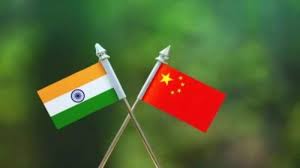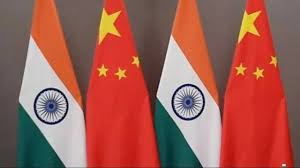Digital News Guru National Desk:
In a significant diplomatic development, India has categorically rejected China’s recent attempt to rename 27 locations in Arunachal Pradesh, asserting that such actions will not alter the reality of the state’s status as an integral part of India. The Ministry of External Affairs (MEA) issued a strong statement on May 14, 2025, emphasizing that “creative naming will not alter the undeniable reality that Arunachal Pradesh was, is, and will always remain an integral and inalienable part of India”.
China’s Renaming Initiative
The Chinese Ministry of Civil Affairs announced standardized names for 27 places in Arunachal Pradesh on May 11–12, 2025, referring to the region as “Zangnan” or southern Tibet. This marks the fifth instance of China unilaterally renaming places in the Indian state, following similar moves in 2017, 2021, 2023, and 2024 .

The latest list includes residential areas, mountains, rivers, and other geographical features, accompanied by detailed coordinates and maps in Chinese, Tibetan, and Pinyin characters.
China maintains that its renaming of places in Arunachal Pradesh falls within its sovereign rights. Chinese Foreign Ministry spokesperson Lin Jian stated that Beijing had “standardized some place names in (Arunachal Pradesh), which is entirely within China’s sovereignty”.
India’s Firm Response
India’s MEA spokesperson Randhir Jaiswal dismissed China’s actions as “vain and preposterous,” reiterating that such attempts do not change the ground realities or the status of Arunachal Pradesh as an integral part of India . The Indian government emphasized that these “creative naming” practices by China do not change the “undeniable reality” that Arunachal Pradesh is an integral part of India.
This diplomatic protest reflects ongoing tensions between the two neighboring countries over border issues. The MEA’s statement underscores India’s clear stance on its territorial integrity and sovereignty over Arunachal Pradesh, a region that China has frequently laid claims to by assigning alternate Chinese names to locations there.
Historical Context
The border dispute between India and China has been a longstanding issue, with both countries sharing a poorly demarcated 3,800-kilometer frontier.

Despite reaching an agreement in October 2024 to step back from a four-year military standoff in the western Himalayas, disputes continue along their undemarcated border. China’s repeated attempts to rename places in Arunachal Pradesh have been a source of tension, with India consistently rejecting these moves and reaffirming the region’s status as an integral part of the country.
Strategic Implications
India’s firm rejection of China’s renaming attempts underscores its commitment to maintaining its sovereignty and territorial integrity in the face of repeated Chinese claims through unilateral actions. The Indian government’s response aligns with its consistent stance on the issue, emphasizing that assigning “invented names” does not change the ground reality.
The ongoing border dispute and China’s actions have broader strategic implications for regional stability and international relations. India’s response to China’s renaming initiative reflects its broader strategic and security considerations amid increasing regional complexities.
Arunachal Pradesh: The Ongoing India-China Border Dispute Intensifies
India’s categorical rejection of China’s attempt to rename locations in Arunachal Pradesh reaffirms its unwavering stance on the state’s status as an integral part of the country. The MEA’s strong statement and the historical context of the border dispute highlight the ongoing tensions between the two nations. As both countries navigate these complex issues, the international community will closely watch how India and China manage their bilateral relations and address their longstanding territorial disputes.

In a symbolic move to assert India’s sovereignty, Arunachal Pradesh Chief Minister Pema Khandu held a cabinet meeting on May 13 in Kibithoo, the state’s easternmost village bordering China. This marked the first time such a meeting was conducted at this strategic location. The cabinet also approved five hydroelectric power projects aimed at bolstering local infrastructure and economic development.
China maintains that its renaming of places in Arunachal Pradesh falls within its sovereign rights. However, India continues to reject these claims, reaffirming its stance that Arunachal Pradesh is an integral part of the country.
You May Also Read: Amritsar Hooch Tragedy: 21 Dead After Consuming Methanol-Laced Liquor








